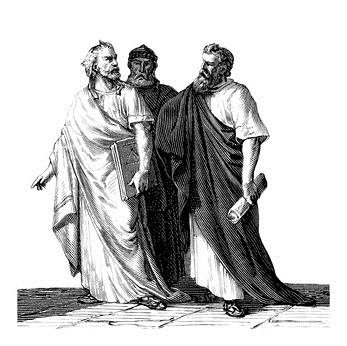 When you were a student, you spent a good deal of time studying the thoughts of philosophers and writers in history. Along the way, you might have encountered a few ideas that struck a chord with you, changing your perspective, from Rene Descartes’ “I think, therefore I am” to Maya Angelou’s “Don't make money your goal. Instead, pursue the things you love doing, and then do them so well that people can't take their eyes off you.”
When you were a student, you spent a good deal of time studying the thoughts of philosophers and writers in history. Along the way, you might have encountered a few ideas that struck a chord with you, changing your perspective, from Rene Descartes’ “I think, therefore I am” to Maya Angelou’s “Don't make money your goal. Instead, pursue the things you love doing, and then do them so well that people can't take their eyes off you.”
As you’ve gotten older, you have continued to develop your own values, beliefs and morals into a personal philosophy that is uniquely your own. Put yours into words through your journaling.
Journaling Exercise: What Do You Believe?
1. When delving into complex questions, sometimes it’s helpful to start with broad strokes before getting more detailed. Are there any groups or categories you identify strongly with? How would you describe yourself if you had to sum up your values or beliefs in a few sentences? Spend a few minutes journaling about your thoughts. For example:
I am an American (a Southerner, more specifically), but I try to think like a global citizen. I believe in a higher power and in the importance of being kind and compassionate to my fellow human beings, but I don’t practice a religion. I am an independent voter, a nature lover and a believer in the importance of community and family…
2. Now look past the big picture to the small but important pieces of your personal philosophy. What are you most passionate about? What are the most important issues to you? What do you consider “deal breakers,” the beliefs you need to be aligned with the people closest to you? Why are these ideas so significant to you? What is the background behind them? For example:
I am a fierce advocate for equality in all its forms. I don’t tolerate hateful ignorance or prejudice from the people in my life, and I try to be honest about identifying my own biases and working to fix them. My parents were a big influence on me in this way, and they taught my siblings and me that we should work to fight injustice (even if that meant just sticking up for the kid bullied on the playground)…
3. Your personal philosophy is not static; it evolves and changes with new experiences and knowledge. How has your belief system changed over the years? Who or what have been important influences? For example:
I’ve changed a lot after moving to different places and meeting people from different walks of life. It’s amazing how wrong you can be about a certain group of people or a certain set of beliefs before you have any firsthand experience. I try to stay humble and remember that I always have more to learn…
What is your personal philosophy? How would you sum up your personal philosophy in one or two sentences? Share your thoughts in the comments.
Get to know more about your personal philosophy and know yourself better with the 'Who Are You? 7 Days Self-Discovery Challenge' e-book

Leave Comment